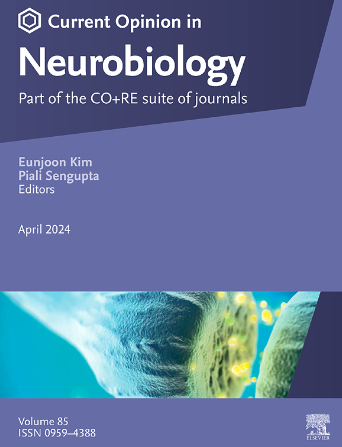Decoding human brain evolution: Insights from genomics
IF 5.2
2区 医学
Q1 NEUROSCIENCES
引用次数: 0
Abstract
The human brain has undergone remarkable structural and functional specializations compared to that of nonhuman primates (NHPs), underlying the advanced cognitive abilities unique to humans. However, the cellular and genetic basis driving these specializations remains largely unknown. Comparing humans to our closest living relatives, chimpanzee and other great apes, is essential for identifying truly human-specific features. Recent comparative studies with closely related NHPs at the single-cell resolution using multimodal genomic profiling, assisted with high-throughput functional screening have provided unprecedented insights into human-specific brain features and their genetic underpinnings. In this review, we synthesize the current knowledge of human brain evolution at cellular and molecular levels, emphasizing how genetic changes have shaped these adaptations. We also discuss the emerging opportunities presented by new technologies and comprehensive atlases for advancing our understanding of human brain evolution.
解码人类大脑进化:来自基因组学的见解
与非人类灵长类动物(NHPs)相比,人类大脑经历了显著的结构和功能特化,这是人类独有的高级认知能力的基础。然而,驱动这些特化的细胞和遗传基础在很大程度上仍然未知。将人类与我们的近亲黑猩猩和其他类人猿进行比较,对于识别真正的人类特征至关重要。最近,在高通量功能筛选的辅助下,利用多模态基因组图谱技术在单细胞分辨率下对密切相关的NHPs进行了比较研究,为人类特异性大脑特征及其遗传基础提供了前所未有的见解。在这篇综述中,我们在细胞和分子水平上综合了目前人类大脑进化的知识,强调遗传变化如何塑造了这些适应。我们还讨论了新技术和综合地图集为促进我们对人类大脑进化的理解所带来的新机会。
本文章由计算机程序翻译,如有差异,请以英文原文为准。
求助全文
约1分钟内获得全文
求助全文
来源期刊

Current Opinion in Neurobiology
医学-神经科学
CiteScore
11.10
自引率
1.80%
发文量
130
审稿时长
4-8 weeks
期刊介绍:
Current Opinion in Neurobiology publishes short annotated reviews by leading experts on recent developments in the field of neurobiology. These experts write short reviews describing recent discoveries in this field (in the past 2-5 years), as well as highlighting select individual papers of particular significance.
The journal is thus an important resource allowing researchers and educators to quickly gain an overview and rich understanding of complex and current issues in the field of Neurobiology. The journal takes a unique and valuable approach in focusing each special issue around a topic of scientific and/or societal interest, and then bringing together leading international experts studying that topic, embracing diverse methodologies and perspectives.
Journal Content: The journal consists of 6 issues per year, covering 8 recurring topics every other year in the following categories:
-Neurobiology of Disease-
Neurobiology of Behavior-
Cellular Neuroscience-
Systems Neuroscience-
Developmental Neuroscience-
Neurobiology of Learning and Plasticity-
Molecular Neuroscience-
Computational Neuroscience
 求助内容:
求助内容: 应助结果提醒方式:
应助结果提醒方式:


